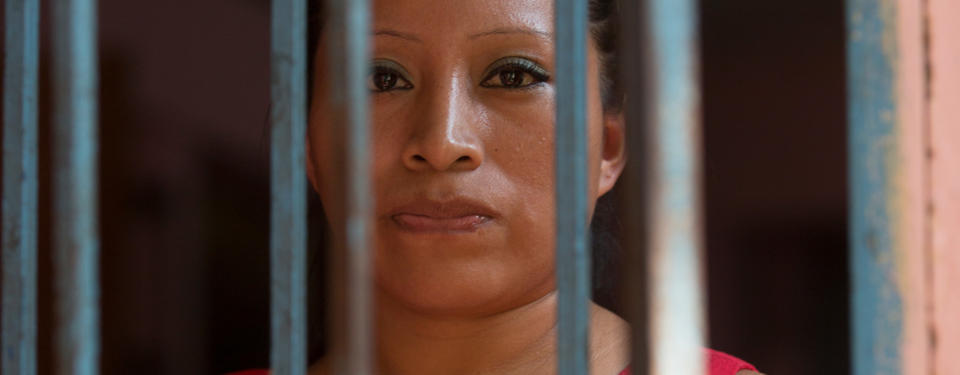
In El Salvador, where abortion is banned under all circumstances, nurses and doctors are forced to report suspected abortions, or they could face prosecution. Women who seek medical care because of a miscarriage or botched abortion are often turned over for investigation.
The burden of prosecution and punishment overwhelmingly falls on poor, young women who lack the resources to access medical care and who cannot afford to travel to another country for an abortion. Oftentimes, they are victims of rape, as the country has a high crime incidence, especially when it comes to violence against women.
Teodora del Carmen Vásquez was nine months pregnant and working at a school cafeteria when she felt a deep pain in her back. She called 911 several times before she fainted in a bathroom, surrounded by a pool of blood.
Teodora had suffered a miscarriage, and she was eventually taken to the police station instead of the hospital. There, she was arrested on suspicion of violating El Salvador’s abortion law, one of the world’s strictest. The police ended up taking her to the hospital where she was handcuffed, and later on, she was sentenced to 30 years in prison for aggravated homicide.
“From the moment we get pregnant, we become incubators. We lose our rights because the only possibility that we have of a life is taking care of the product inside us. It’s violence against us,” said Vásquez, who served 10 years behind bars.
Abortion rights activists cautioned that the situation has allowed countless human rights violations against women in El Salvador. They claim it should serve as a warning to the U.S., where 20 states would immediately ban abortion access if Roe v. Wade were overturned.
Although some states may have exceptions in places for cases of rape or incest, others are likely to have none. It means that rape victims would be forced to give birth and that women who miscarriage or have a medical emergency would be accused of having intentional abortions, effectively criminalizing their right to choose.
“These states are going to live similar situations that women are living in El Salvador,” Martínez Coral concluded.

Recent Comments